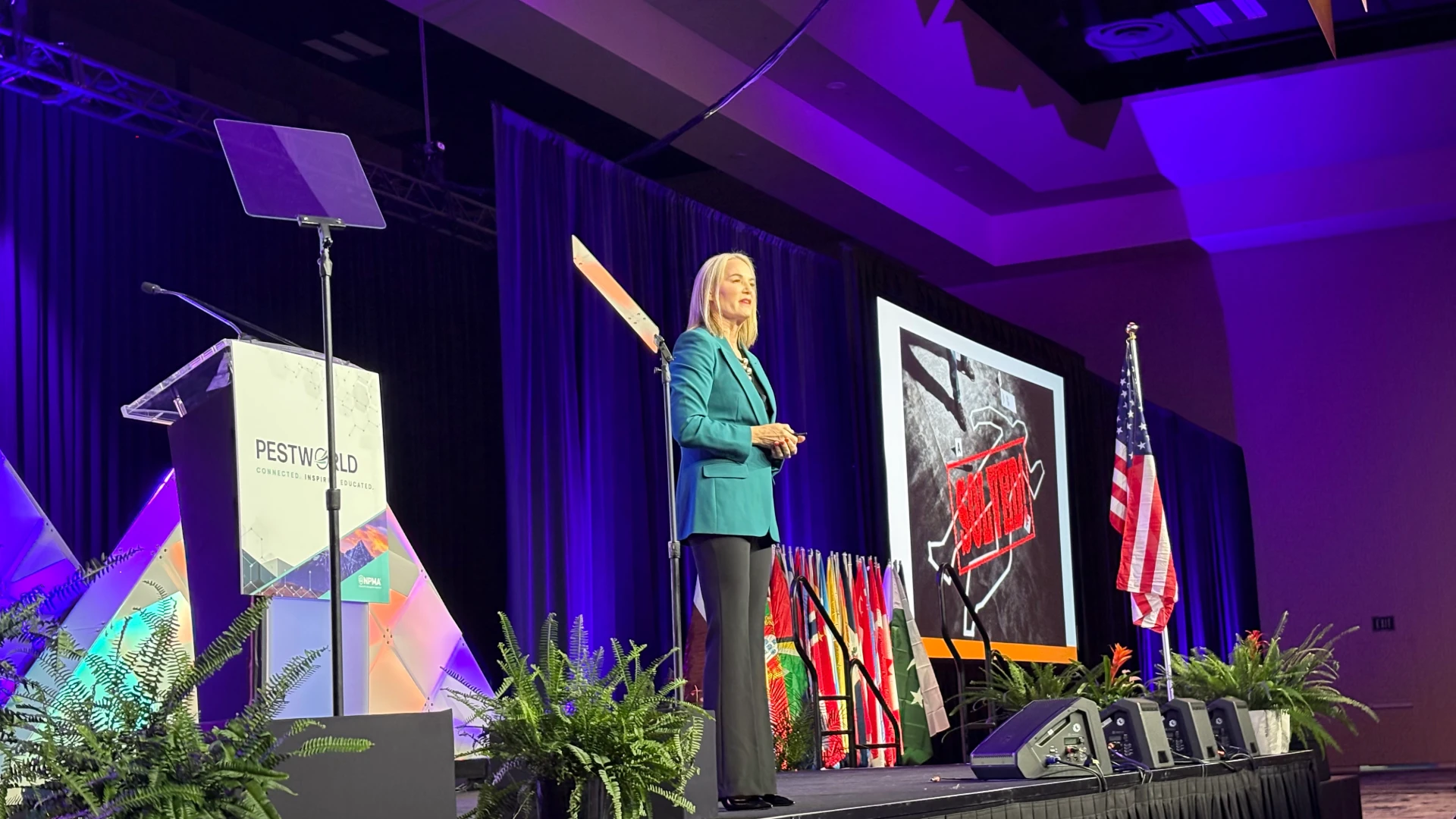
Amanda Joerndt
DENVER, Colo. — Diversity comes in many different forms, Kelly McDonald said during a Corteva-sponsored keynote at PestWorld 2024, in Denver, Colo. Besides racial and ethnic definitions, McDonald said diversity can be expressed through different personalities, neurodiversity, such as autism or ADHD, introverts vs. extroverts, religious differences, working alone vs. collaborating with peers and more.
McDonald highlighted U.S. Census Bureau Diversity Index data finding in 1980, there was a 34 percent chance that two people would be of a different race or ethnicity, and a 66 percent chance they would be the same race, probably white, considering the majority of the U.S. population was white.
Now, there’s a 61 percent probability that two people will be different races or ethnicities and predicted for 2024 that the index is now at 73 percent.
McDonald was able to identify two macro trends from this data: We’re becoming a more diverse population and becoming more diverse more quickly.
“The difference between fads and trends is fads come and go, like fashion,” she said.
“Trends don’t come and go, they are shifts, and once they shift, they rarely shift back.”
One thought-provoking question McDonald asked was, “How do we work with people in a diverse workplace who are not like us?” Putting feelings aside, business doesn’t run on emotions, it runs on metrics, performance and data that is measurable to detect growing trends in a business, she said.
“We avoid the people who make us the most uncomfortable,” McDonald said. “Social psychologists say that if you are struggling to work with someone who is not like you, that makes you normal. You are not a bad person and definitely not alone. The struggle and discomfort are normal.”
How do we keep going to work with diverse individuals and power through uncomfortable situations to get the job done? Here are eight strategies McDonald shared for breaking down walls and building confidence in your team:
- Build vulnerable trust: Every management book in the world will say that you need to build trust, but social psychologists say that there’s not one kind of trust, there are two. The first is called common trust, given to people automatically, like when we’re driving on the road, or if you flew on an airplane, you had to get on a plane and hope the pilot is trained. Vulnerability trust is the kind that breaks down walls and it has to be reciprocated. Be honest, even when it’s hard.
- Be aware that our differences are real: We’re all equal, but we’re not the same. Social psychologists have identified that working with women and men in sales are very different. Women value expansive choices and seeing all of the options. Men want their choices simplified (for example, three choices).
- Give people what they want: When you give people what they want, they’re happier. Personalized communication is super important these days. Let your clients and prospects dictate how they want to be communicated with.
- Collaborate, especially with people who are not like you. It’s about being open to their ideas. It's not about proclaiming your idea to be good or bad, but understanding the thinking behind it. Sometimes, other people’s ideas are deeply flawed, but the thinking behind them is golden. It gives the other person a chance to explain their thinking, but tone matters here.
- Be open to the intersection of random: You never know when people are going to come into your life that will have a profound impact on your life or your business. And sometimes when people come into our lives that are really random, we tend to not think much of it. Lean into that intersection of random. You never know where it’s going to take you.
- Agree to disagree: When we don’t agree with others is when we need to talk more about it. Agreeing to disagree is a conversation ender. We’re not being judgmental or superior in disagreeing with someone. It's possible for two people to look at the exact same thing and see it differently.
- Take the emotion out of it: Understand that it’s okay if you don’t like someone you work with. You have to be respectful and professional, but nowhere does it say you must like everyone. It’s not realistic or possible to like everyone.
- Say “I need your help” more often: Stop saying, “Can you help me?” and instead say, “I need your help.” We are wired to help each other as human beings.
Latest from Pest Control Technology
- Donny Oswalt Shares What Makes Termites a 'Tricky' Pest
- Study Finds Fecal Tests Can Reveal Active Termite Infestations
- Peachtree Pest Control Partners with Local Nonprofits to Fight Food Insecurity
- Allergy Technologies, PHA Expand ATAHC Complete Program to Protect 8,500 Homes
- Housecall Pro Hosts '25 Winter Summit Featuring Mike Rowe
- Advanced Education
- Spotted Lanternflies, BMSBs Most Problematic Invasive Pests, Poll Finds
- Ecolab Acquires Guardian Pest Solutions





